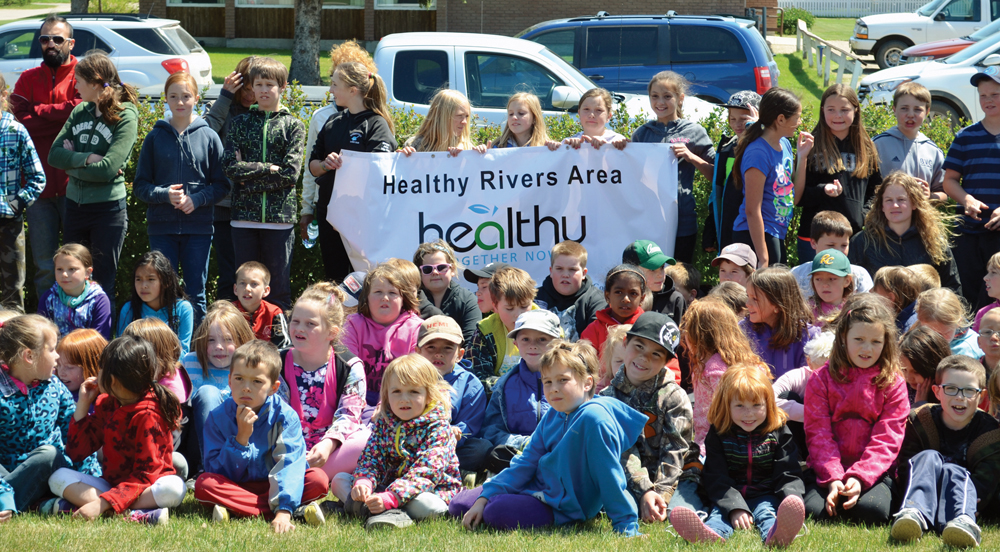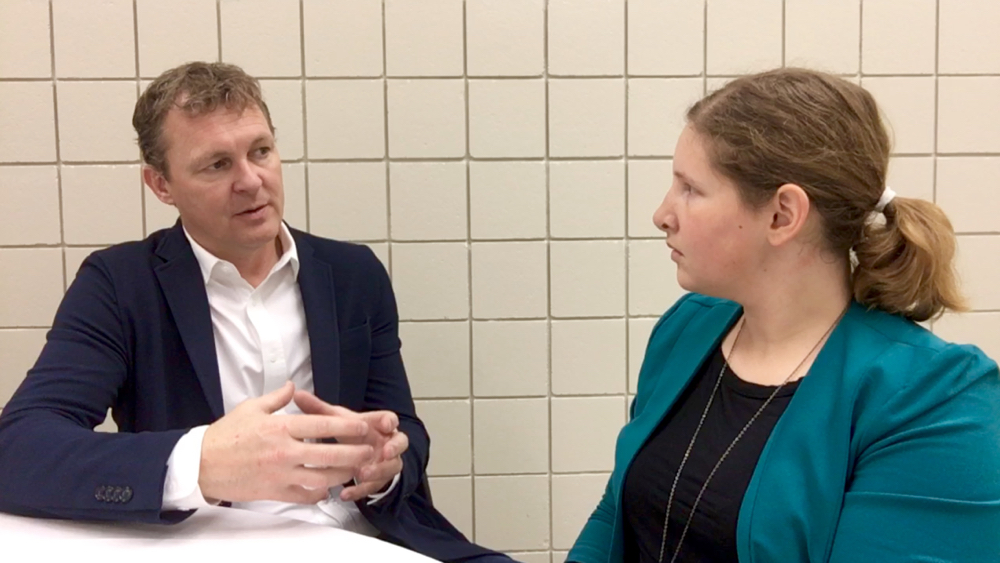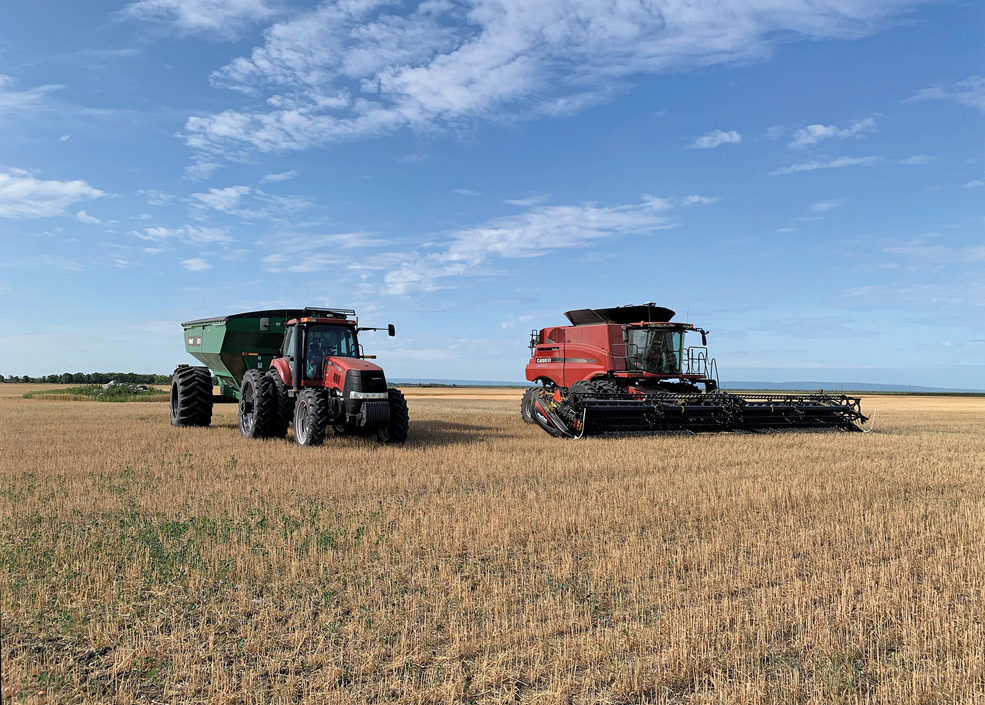First-year medical students from the University of Manitoba got a dose of country life last week as part of an event showcasing the benefits of working and living in rural Manitoba communities.
Thirty-three students from the University of Manitoba’s faculty of medicine were placed in 13 communities, including Brandon, Dauphin, Glenboro, Grandview, Hamiota, Neepawa, Rivers, Russell, Souris, Ste. Rose, Swan River, Treherne and Virden.
“I would be shocked if this experience dissuaded anyone from rural medicine. I think most, if not all, students will come away from this with a better appreciation for rural doctors and the need for physicians in these areas,” said participating student Ryan Best.
Best participated in Rural Week in Rivers, along with fellow medical student, Justin Kozak. Both Best and Kozak are from Winnipeg and had had little previous exposure to small-town Manitoba.
“I think these early exposures to rural medicine make students way more likely to take up a longer rural exposure down the road,” said Kozak. “I have been blown away by the hospitality we have received here this week. There have been so many individuals who have gone above and beyond to make sure that we feel welcome and you can tell that it is so genuine.”

The event was co-ordinated by Manitoba’s Office of Rural and Northern Health (ORNH), the University of Manitoba and regional health authorities to give students the opportunity to gain first-hand experiences of how rural medical practices work.
“Rural Manitoba offers tremendous opportunity for a rewarding career and a great lifestyle, but it is only through direct experiences like Rural Week that students become aware of the possibilities,” said Wayne Heide, administrative director with ORNH. “For urban-origin students this may be their first real experience with rural life. For those from rural areas it is a chance to reinforce the positive aspects of rural life and to connect them to medical professionals who have chosen to practise rurally.”
Manitoba first held Rural Week in 2003 as an optional experience for medical students. Rural Week was approved as a mandatory component of the Medical-One curriculum in 2004 as part of the strategy to address chronic medical doctor shortages in rural communities.
Read Also

First Manitoba hay harvest short
Manitoba’s first hay cut of 2025 isn’t huge by initial counts, but things are worse farther west in the Prairies
Throughout the week students work with area physicians in the office, hospital, clinic, during on-call and emergency room coverage, to gain a basic understanding of the role of the rural family physician.
“There is no doubt that rural doctors are required to be more generalist. You might have to be the first person to see a trauma case come in and at the same time you are dealing with pediatric cases, where in the city a pediatric physician would handle,” said Best.
Outside of the medical clinic, hosting towns are encouraged to offer lifestyle itineraries, where students can take part in everything from fishing expeditions to recreational activities in order to learn about the community and experience the rural lifestyle.
“We took the students all around town. To the golf course, around the lake and to the nearby Hutterite colony and they have been able to talk to all different kinds of people, in the hospital and out,” said Donna Morken, chair of Healthy Rivers Area committee and key community member behind Rural Week activities. “We wanted them to get an appreciation for the rural area and what life would be like living in a community like this.”
The student week in Rivers was concluded with the second annual, Walk with your Doc event. The initiative that comes from a doctor in B.C. that began six years ago, is aimed to encourage doctors to prescribe exercise.

“We always want to keep the community healthy and I saw something about Dr. Jim Wilson from B.C. and how he was a family physician who was prescribing exercise for his patients,” said Morken. “Last year, we were excited to be the first community in Manitoba to hold a Walk with your Doc event. We were also able to co-ordinate it with Rural Week, so the two students could walk with the community on their final day here.”
Nearly 300 individuals came out for a stroll around Rivers for the second annual Walk with your Doc event. Morken and the Healthy Rivers Area committee have now issued a challenge to other hospitals and communities throughout the province, to hold their own Walk with your Doc event.
“The people who we have been spending time with in Rivers are really committed to the community. From setting up grants and building the new recreation complex, to organizing this kind of walk. The sense of community is really quite impressive,” said Best.
In terms of attracting doctors into Manitoba’s rural areas, Kozak believes that there isn’t one simple solution to combating the ongoing shortages.
“I think that it is a matter of several different factors. I don’t think that there is one specific thing that will attract doctors to rural Manitoba. Exposure is a huge part of it and experiences like this one, especially early on in medical school, can really make a difference,” said Kozak. “It is a matter of finding the right balance between financial incentives, ongoing exposure in the classroom and attracting people who are from the rural area to pursue medicine as they are more likely to return to this kind of lifestyle.”
Both Best and Kozak say that it is far too early to pinpoint where they hope to end up following medical school, but note that Rural Week has certainly given them a better perspective on the benefits of a rural practice.
“Rivers has left a really good impression on me. One of the really nice things about a community like this is that you can really make a difference and you can see the difference you’re making,” said Kozak. “Sometimes when you are in a big city it feels like everything you do is just a drop in the bucket.”




















